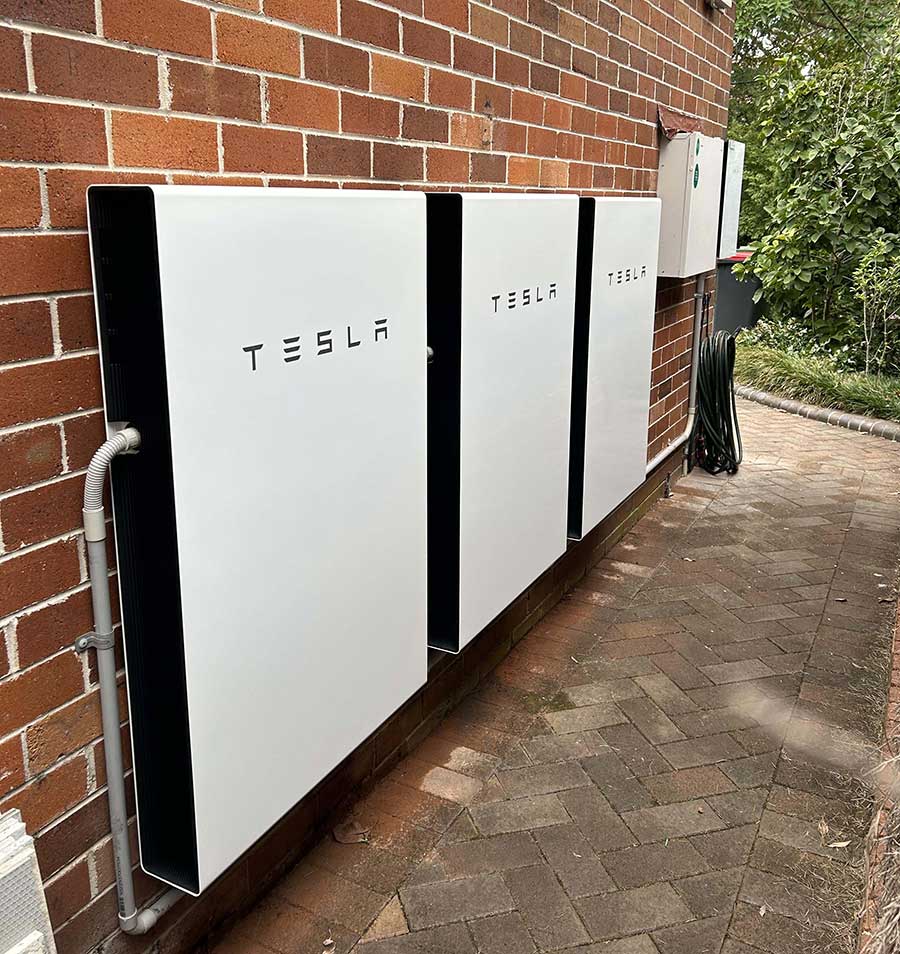By Finn Peacock, Chartered Electrical Engineer. Fact checked by Ronald Brakels.
Last Updated: 7th Apr 2025
How Many Batteries Do You Need?

Installation credit: Teho
TLDR: As a minimum, aim for battery storage equal to 25% of your daily usage, plus 2 kWh for backup. So if you use 20 kWh a day, don’t go smaller than a 7 kWh battery. It probably won’t last all night, but it’ll usually cover the expensive evening peak.
How Much Battery Storage Do You Need?
It depends what you want your solar battery to do.
Most people start with the idea of wiping out their grid electricity bills completely. That sounds good in theory — but in practice, it gets expensive fast.
So let’s walk through how much storage a typical Aussie home might actually need.
How Much Electricity Do You Use?
- The average Australian household uses around 16 kWh per day.
- Big homes with air-con, electric hot water, and a pool might use 30 kWh or more.
- Some large family homes chew through 60 kWh+ daily.
- And if you have a well-driven EV or two you could use even more!
How Much Is Used At Night?
If you work a 9–5 job, you’ll probably only use about 30% of your energy during the day — when the sun is up and your solar panels are working.
That means 70% of your usage happens at night, when you’re not generating solar power (this is a general assumption and your usage patterns will vary).
So if your daily use is 16 kWh, roughly 11 kWh will need to come from stored energy or the grid.
Battery Sizing Basics
Battery storage is measured in kilowatt-hours (kWh).
If you want to cover your night-time usage entirely and use 11 kWh overnight, you’ll need 11 kWh of battery storage.
But it’s smart to add at least a 2kWh buffer for backup power — in case the grid goes down.
For example, a household using 16 kWh per day might want at least 13–14 kWh of storage to cover most of the night and have backup.
Why Smaller Batteries Sometimes Make More Sense
The bad news: Batteries cost from $800 to $1000 per kWh fully installed before any rebates.
The good news: You don’t have to cover all your night use with a battery. In fact, the first few kilowatt-hours of storage usually give you the fastest payback. They’re used every night, so they earn their keep.
But the more capacity you add, the longer the payback time gets. So if payback is your priority, don’t blow your budget trying to chase every last kWh.
But if your main goal is to avoid using grid electricity, a bigger battery might be worth it – even if it takes longer to pay for itself.
The Most Important Step: Know Your Usage
The best battery size for your home depends on your actual energy use, not averages.
So before buying anything:
- After you’ve had solar for at least 12 months, Download your smart meter data.
- Work with a good installer who can analyse the smart meter data or do it yourself with our battery calculator.
- See what size battery and solar system makes financial sense for you.
That way, you’re making a smart decision based on data — not guesswork.
Want help finding a great installer who can do this properly? We can help.
>> Next: What brand of batteries should you buy (or is Tesla your only choice)? >>